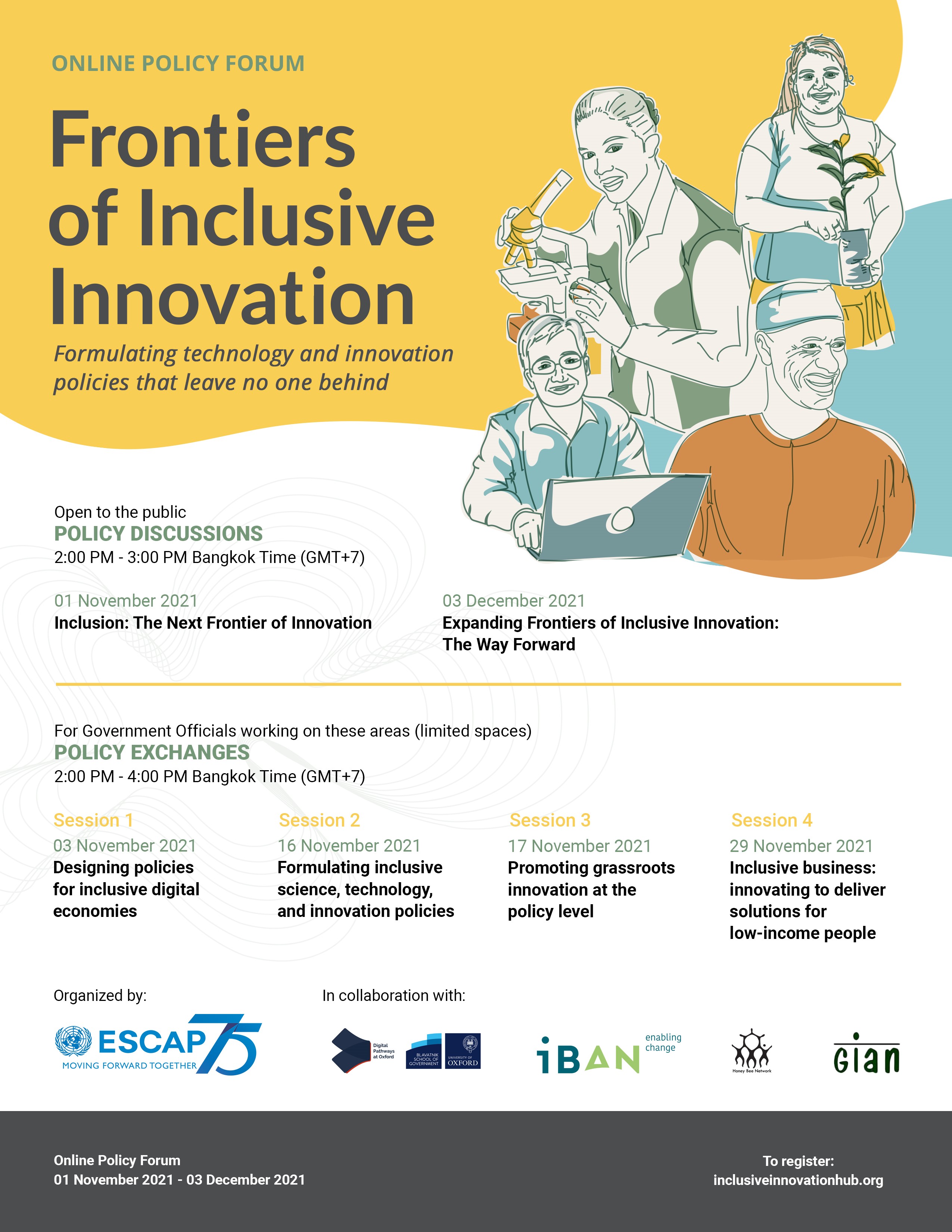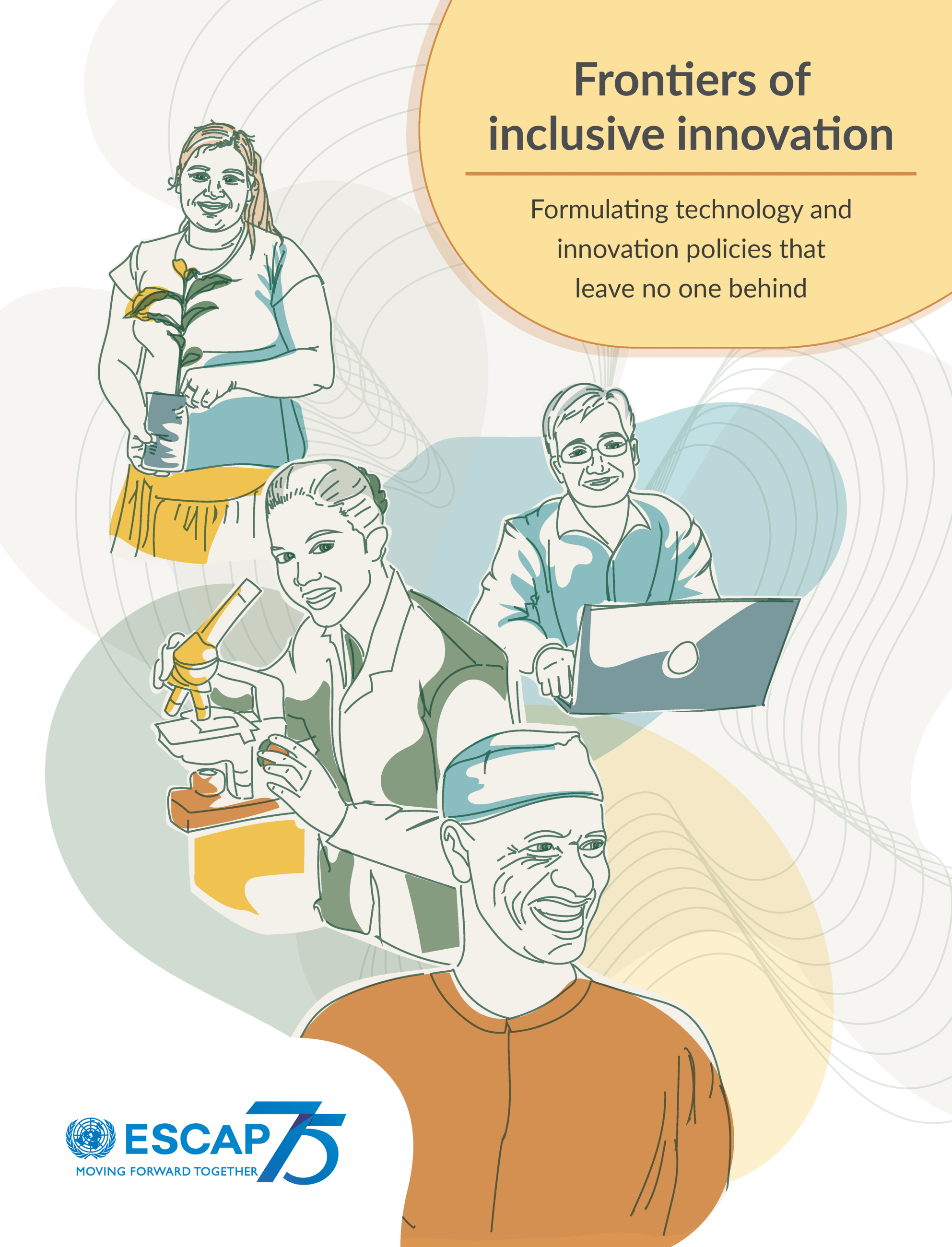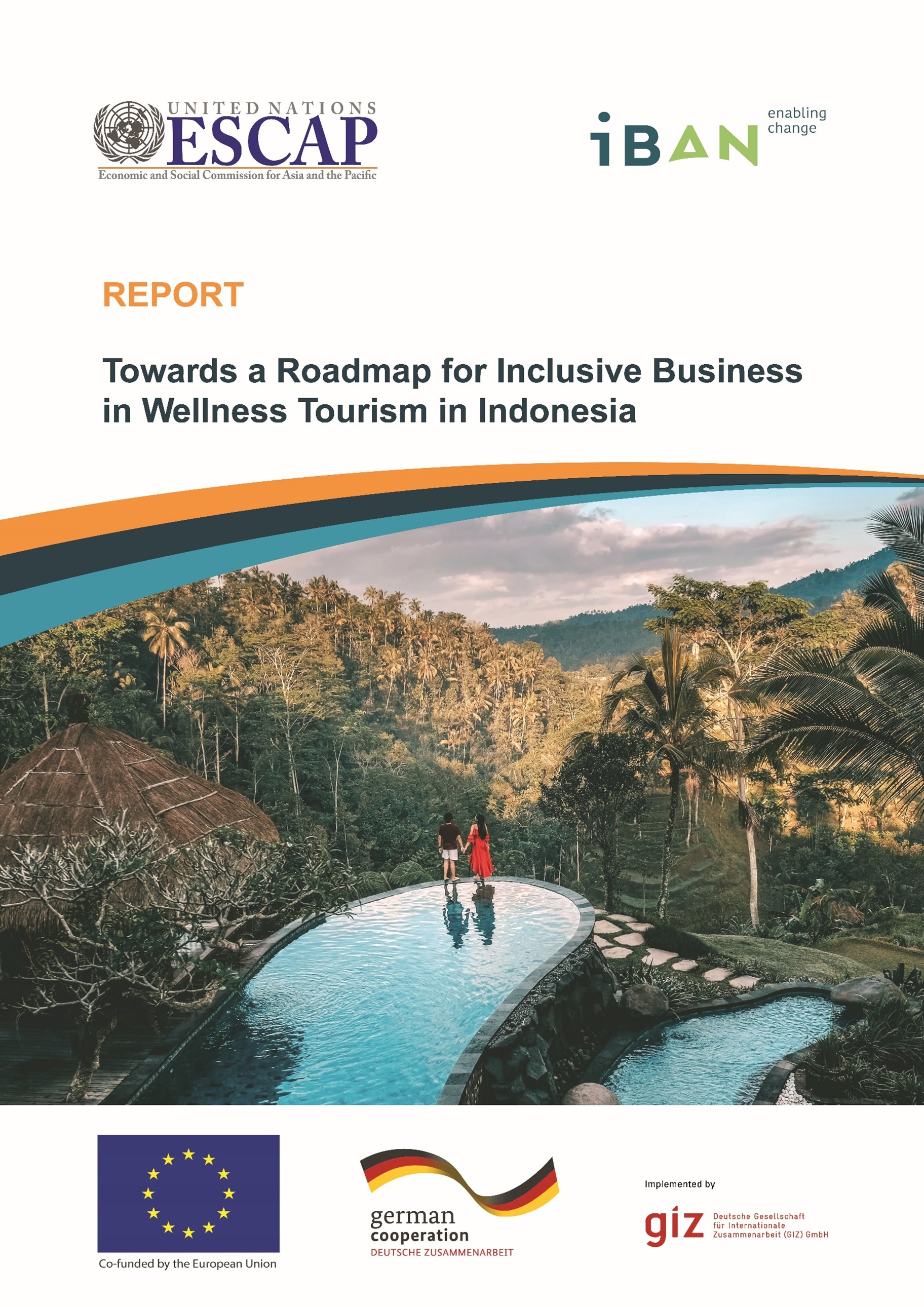Events & Publications on the topic: inclusive business
Promoting Inclusive Businesses in Viet Nam Inclusive Business Consultative Dialogue
Expert Group Meeting on Inclusive Business: Innovating to Deliver Solutions for Low-Income People
Report of the Frontiers of Inclusive Innovation Policy Forum
The Frontiers of Inclusive Innovation Policy Forum was organized by ESCAP in collaboration with Digital Pathways at Oxford, the Inclusive Business Action Network (iBAN), the
Webinar on Technology and Innovation with Equity: Perspectives from Asia and the Pacific
Frontiers of Inclusive Innovation: Formulating technology and innovation policies that leave no one behind
Science, technology and innovation (STI) can increase the efficiency, effectiveness and impact of efforts to meet the ambitions of the 2030 Agenda for Sustainable Development. The successful adoption of existing innovations has enabled many economies to sustain economic growth. Innovation can expand access to education and health-care services. Technologies, such as those supporting renewable energy, are also providing options for more environmentally sustainable development paths.
Policy Discussion on Inclusion: The Next Frontier of Innovation
Towards a Roadmap for Inclusive Business in Wellness Tourism in Indonesia
Tourism is a priority sector for the Government of Indonesia and plays an important role for economic growth and employment creation. Indonesia has diverse and rich landscapes and natural ecosystems that position the country as an attractive destination for tourists. In 2018, tourism was responsible for 10.3 per cent of the total employment in Indonesia and over 6 per cent of national GDP. Because of a signicant increase in foreign visitors since 2016, these numbers were expected to increase until the COVID-19 pandemic hit the tourism sector in early 2020.
Landscape Study of Inclusive Business in Viet Nam
Inclusive businesses (IB) are companies that provide goods, services, and livelihoods on a commercially viable basis, either at scale or scalable, to people living at the base of the economic pyramid by making them part of the value chain of companies’ core business as suppliers, distributors, retailers, or customers. In addition to these commercially inclusive activities, businesses may also pursue broader socially inclusive goals. Inclusive business should promote sustainable development in all its dimensions – economic, social and environmental.




